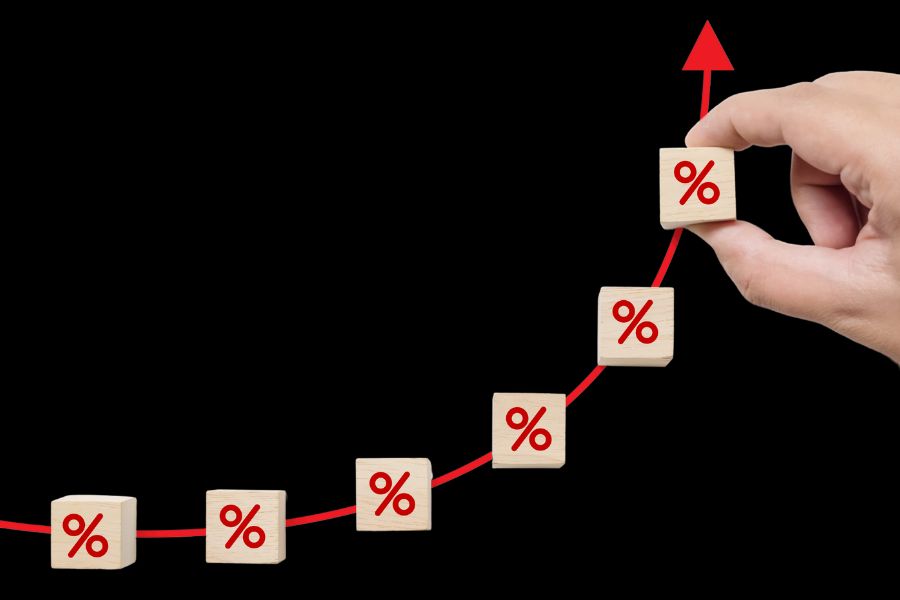Why is the Fed hiking rates, and does it affect mortgage rates?
The U.S. Federal Reserve has hiked rates a few times this year. You may be wondering, why is the Fed hiking rates, and does it affect mortgage rates?
Most likely, we have all recently said or heard, “Can you believe the price of gas and groceries?” and “The dollar just doesn’t go as far as it used to.” This increase in prices and the fall in the purchasing value of money is called inflation. Inflation can occur when prices rise due to increases in production costs, such as raw materials and wages. Inflation can also occur when there is a surge in demand for products and services where consumers are willing to pay more for the product or service.
To combat inflation, the Federal Reserve, the central bank of the United States, is hiking the Federal Reserve Funds Rate, the overnight borrowing rate for banks. This is not the same as mortgage rates. Hiking the Fed Funds Rate helps slow the economy because higher interest rates mean higher borrowing costs. Consumers will eventually start spending less, the demand for goods and services will then drop, and inflation will begin to fall.
So, how do inflation and increasing Federal Reserve rates affect mortgage rates? The Fed Funds Rate is different from mortgage rates. The Fed does not directly control mortgage rates. Many think that when the Federal Reserve hikes interest rates, mortgage rates are sure to follow. But this is not necessarily the case. Mortgage rates can be impacted by inflation, but mortgage rates are also determined by various economic factors such as unemployment rates, jobless claims, and supply and demand. How do these economic factors impact mortgage rates? Bond rates and mortgage-backed securities drive mortgage rates. A bond is a loan from an investor to a company that uses the money to fund its operations. The company then pays back the loan with interest to the investor. A mortgage-backed security (or MBS) is an investment bond, but it is made up of a bundle of home loans and other real estate loans from a bank or mortgage company. Mortgage-backed securities are considered a less risky, or a more safe investment because of set interest rates, longevity, and the number of loans in the bundle or package making up the MBS. So, suppose investors are concerned about losing money in investments for any reason such as the economy or political uncertainty. In that case, they will invest in more safe investments like mortgage bonds rather than the stock market or other riskier investments. If the number of investors who want to buy mortgage bonds increases, the demand for those bonds increases, so the bond price goes up. Supply and demand is impacting the price. An investor may pay $1,000 for an initial investment and expect a 5% return on investment compounding each year for the term of the loan, but if that same investor wants to have the same increase at the end of the same term but pays $2,000 for the initial investment, the interest for that loan would decrease. The higher the initial price of the bond, the lower the interest rate. The greater the demand for mortgage bonds, the higher the cost of bonds, and the lower the interest rate. So, in reality, investors decide if mortgage rates will rise or fall by buying or not buying mortgage-backed securities.
It’s important to remember that each borrower’s mortgage rates can differ from the national average rates based on credit score, loan type, term, down payment amount, local loan programs, and much more. This is why it is so important that borrowers work with a local lender who can help them find the best opportunities for their individual mortgage.



Leave a Reply
Want to join the discussion?Feel free to contribute!